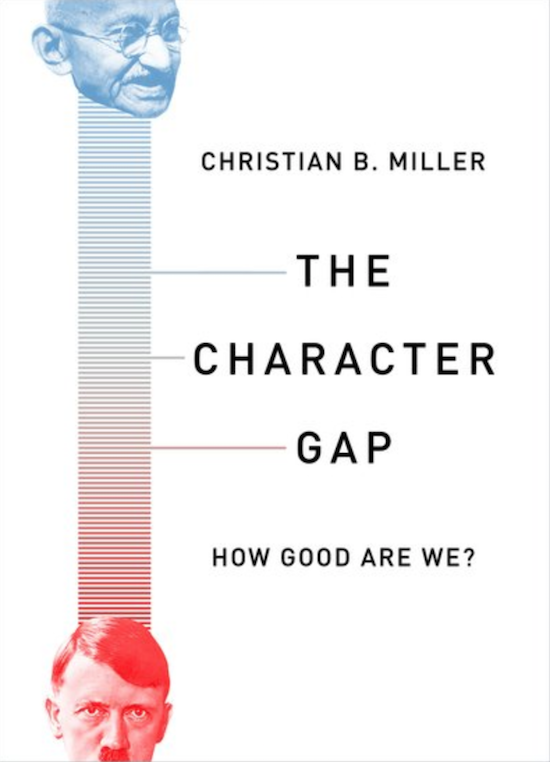Are people mostly good or mostly bad? We’re apt to think of ourselves as good people, while thinking of the general population as not-so-stellar. My guest today argues that most people, including yourself, are really best described as a mixed bag.
His name is Christian Miller, he’s a professor of moral philosophy and religion at Wake Forest University, and today on the show we discuss his new book The Character Gap: How Good Are We? We begin our conversation discussing how Christian defines the extreme ends of the character spectrum and why very few people can be described as entirely virtuous or vicious. Christian then points to psychological studies that highlight both bad news and good news as to whether humans tend to have praiseworthy or blameworthy character, and which suggest that whether we behave virtuously or viciously often depends on the context we find ourselves in. We then discuss how to close the gap between how we should act and how we do act, including practices that strengthen our ability and desire to do the right thing. We end our conversation discussing how all world religions provide structure to moral development and why we should be slow to call ourselves and others good or bad people.
Show Highlights
- How Christian defines good character vs bad character
- Why underlying motivations matter in determining character
- How can you figure out people’s real intentions?
- What about objectivists (those who are altruistic because it feels good to them)?
- Flesh and blood examples of virtuous and vicious people in history
- Finding virtuous people in your own life
- Where most people truthfully land on the virtue-vicious scale (and studies which prove this)
- The effect of peer pressure on our virtuous acts
- Why we shouldn’t judge people based on one bad behavior
- Why the Milgram shock experiment doesn’t actually paint people as wholly awful
- How much context and our environment matters in determining our virtue and character
- Free will and character
- So how can we close the character gap and become more virtuous?
- The importance of finding real-life examples of virtue to inspire you
- How to audit your own character and virtuousness
- The value of religion and religious texts (even if you’re secular)
- Why you should have a community around you on the same quest for virtue
- Why you need cut yourself and others some slack
Resources/People/Articles Mentioned in Podcast
- Ben Franklin’s 13 Virtues
- The Forgotten Virtue of Reverence
- Our Disembodied Selves and the Decline of Empathy
- Should a Man Be Inspired by History?
- Milgram shock experiment
- The Character-Building School of Parenthood
- The Road to Character
- What Is Character? Its 3 True Qualities
- How to Become Your Family’s Transitional Character
- Cabinet of Invisible Counselors
- Why You Should Go to Church (Even if You’re Unsure of Your Beliefs)
- The Spiritual Disciplines
Connect With Christian
Listen to the Podcast! (And don’t forget to leave us a review!)
Listen to the episode on a separate page.
Subscribe to the podcast in the media player of your choice.
Podcast Sponsors
Proper Cloth. Stop wearing shirts that don’t fit. Start looking your best with a custom fitted shirt. Go to propercloth.com/MANLINESS, and enter gift code MANLINESS to save $20 on your first shirt.
ZipRecruiter. Find the best job candidates by posting your job on over 100+ of the top job recruitment sites with just a click at ZipRecruiter. Visit ZipRecruiter.com/manliness to learn more.
RXBAR. A whole food protein bar made with a few simple, clean ingredients. Go to RXBAR.com/manliness and enter promo code “manliness” at checkout to get 25% off your first order.
Click here to see a full list of our podcast sponsors.
Read the Transcript
Coming soon!
The post Podcast #445: How to Close the Character Gap appeared first on The Art of Manliness.
Podcast #445: How to Close the Character Gap published first on https://mensproblem.tumblr.com






